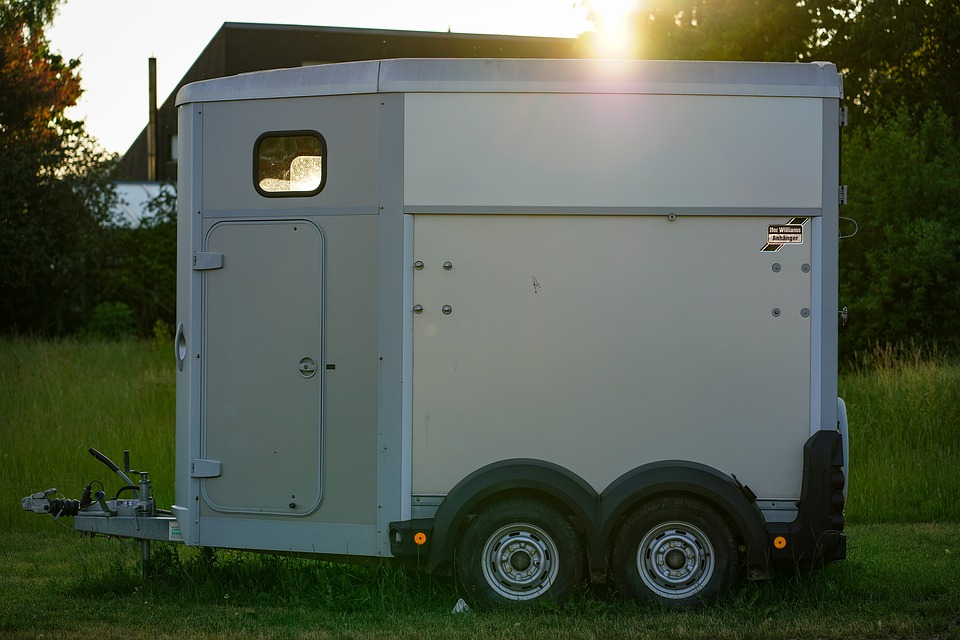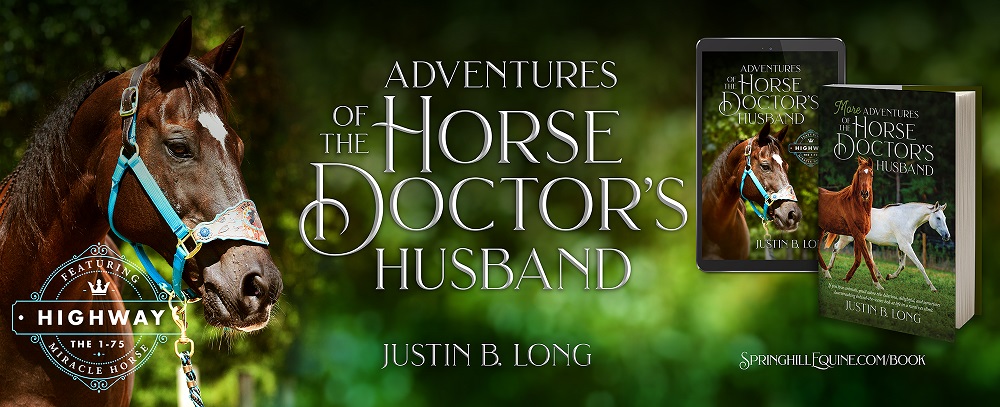Tuesdays with Tony
Horses are such trusting creatures. They willingly follow you humans into the dark black boxes you call trailers. Try putting me in a dark box (you call them cat carriers) and claws will fly, that I promise! There’s much protest when my minions ask me to get into a carrier, and often blood is drawn, but horses, horses just follow you humans into their horse carriers. I’ve seen a few protests, but with a little encouragement and some food, they comply and walk right on.
Since your horse trusts you as much as it does, there are some very important trailering safety tips we must go over to maintain that trust. From loading to unloading and everything in between, there are opportunities for things to go wrong. When things go wrong there is risk for injury, or even the death of your beloved horse. You’ll hear all kinds of differing opinions about trailering, and I’ll try to touch on many of these opinions, but it’s important to remember that you have to do what’s best for you and your horse.
Training
As you know, horses like to injure themselves or colic at the most inopportune times. It’s often necessary to transport your horse to a clinic or hospital for treatment. During an emergency is not the time to be teaching your horse how to load or unload. Spend time in your usual day-to-day training teaching your horse to load and unload calmly and quietly. Take time to make sure that your horse is comfortable loading and unloading in all different conditions. Weather and time of day/night can affect your horse’s willingness to get on the trailer. Practicing trailer loading/unloading in normal circumstances will help to ensure your horse remains calm while loading in times of urgency.
Maintenance
Maybe you and your horse are weekend warriors, maybe you go somewhere new every day, or maybe you haven’t left home in years. Whatever the situation, maintaining the functionality of your trailer is essential to the ease and safety of transport. Inspecting the floor of your trailer is an essential part of trailer ownership. Pull the mats up and check for wood rot, rust, holes, and broken welds. Areas of weakness increase the risk of your horse falling through the floor. As you can imagine, a leg through the floor can result is severe injury which could even be career or life ending.
Lights are one of my biggest cat peeves. Why would you put your horse, which you dearly love, in a trailer with no brake lights, or no turn signals? That increases the risk of getting rear-ended by about 1,000%. If you don’t think that’s a big deal, do a Google image search for “horse trailer accidents” and look at what has happened to other people and their horses. It’s not pretty.
The Florida sun is one of my favorite things. I love basking in it while taking my morning, midday and afternoon naps. However, the sun is not always good. For example, it causes dry rot of tires, even brand-new tires. Air pressure is also vitally important. Low air pressure is the number one cause of tire failure, and the easiest thing to avoid. A small air compressor is a lot cheaper than new tires!
Checking tires should be part of your trailer hook-up routine. A blowout can leave you stranded on the side of the road. It puts your horse at risk for overheating, colic, and dehydration, not to mention it just sounds miserable in the heat. Blow-outs can also cause accidents.
I also highly recommend yearly maintenance by trailer professionals. They can look at all the ins and outs of your trailer, repack wheel bearings, and make sure everything stays in tip top condition. Maintaining a safe trailer in good working condition will most certainly reduce the risk of accidents and make for smoother hauling of your most precious cargo.
To tie or not to tie?
That really is the question, isn’t it? My docs get asked this question all the time. And even my docs are split on their answer. Some say yes, tie your horse up while hauling, while others say not to tie. I feel like this is one of those personal preference kind of things. However, whichever way you chose, please do so with your horse’s safety in mind.
When your horse is loose in the trailer, they have the ability to maneuver and stabilize themselves in whichever way they feel safest. They are also able to lower their head and neck more easily which allows them to rest while on a long ride, and sneeze to clear dust in their nostrils and lungs. Similarly, if choosing to ship your horse loose in a box stall, they have the choice to lay down if they are on a particularly long trip. Some very small horses or ponies might be at risk of turning around in the straight stall of a trailer if they are left loose, or they may find themselves under a bar or panel where they could get injured by another horse. However, most horses find comfort in a bag of hay in front of them and the ability to move around as necessary.
Alternatively, you may choose to tie your horse up in the trailer. This is a feasible option as well, but there are some very important points that we must address. First of all, if you choose to tie, please make sure you are using functional safety release cross-ties that will let go if your horse were to get itself in a compromising position. You may also choose to use a quick release knot when tying your horse. Whichever method you decide on, make sure the lead rope and any extra equipment is secured safely out of the reach of your horse.
Possibly the most important thing to remember when tying your horse in the trailer is what type of halter you use. Please, listen to this old cat on this one. Please, please, please put your horse in a leather halter, or at the very least, a break-away halter. Halters that don’t break, including rope halters, are incredibly dangerous whether your horse is tied or not. If a horse slips and falls or there is an accident, and your horse is tied with a rope halter or one that doesn’t break, you risk him breaking his back or neck. Similarly, if your horse is in the trailer and has a halter on that is not breakable, you risk him getting caught on a part of the trailer, panicking and injuring himself. And if your trailer is on its side or upside down, it can be nearly impossible to get them out if they are too securely attached. The longer it takes to get them out, the more they will suffer, and the less likely they are to survive. Trust me, this is something that is so easy and can prevent CATastrophe.
Other Tips
By no means have I even begun to touch on everything that’s involved in trailering your horse safely. And these are just a few other tips and tricks I have learned along the way. Before we get to them though, I just want to remind you that my docs are more than happy to discuss your trailering routine with you and help you develop the safest plan for you and your horse.
Over the years, I have learned that lead ropes like to grow legs and walk off. You’d think that in a horse trailer they wouldn’t go missing, but they do. For this reason, and others, keep an extra lead rope or two in your vehicle. If you’re in an accident, for example, you may need a new one when your horse gets out.
We’ve already talked about the Florida sun and how hot it can get out there. A trailer on the side of the road full of horses can get dangerously hot very quickly. I recommend always carrying extra water with you while you are shipping your horse. You may be going five minutes away or five hours away, but either way, extra water is very important. I’ve found that a five-gallon jug from those office water dispensers works well. They fill easily with a hose, and while they are heavy, they’re fairly easy to maneuver and you can recap them, preventing a mess. Just don’t forget a bucket to pour the water into. I haven’t met a horse yet who can drink out of one of those things.
Last, but definitely not least, let’s talk about your first aid kit. First of all, make sure it’s in a safe, easily accessible place. In your kit, have the phone numbers of your veterinarians handy. That way anyone who may need to use the kit knows exactly who to call if for some reason you are not around. You also want to make sure you have plenty of bandage material. Baby diapers, vet wrap, and duct tape will do just fine. Baby diapers are super absorbent, vet wrap will help you apply pressure to any wounds, and, well, duct tape fixes just about anything.
Veterinary prescribed banamine or bute is also an asset to any first aid kit. As always though, please make sure to check with your veterinarian before administering any medications. A stethoscope and thermometer are useful to have on hand as well. While you wait for assistance you’ll be able to monitor your horse’s vitals and provide your veterinarian with accurate information. There are several other items that can go into your first aid kit, and if you are wondering more about this, check out our video on first aid (https://www.youtube.com/watch?v=XzdQHrRyJxk) or give my clinic a call. They will chat with you about what all is in our very own Springhill Equine First Aid Kit, which you can purchase directly from us.
I know you all love taking your horses with you. Just remember your horse is trusting you to keep it safe every single time it steps on that trailer. So please take the time to check out your trailer and do whatever you can to keep your horse safe and happy while traveling. As always, my docs are ready, willing, and able to chat with you any time about your trailering questions.
Until next week,
~Tony
P.S. If you want a really deep dive into trailering, check out the Trailering episode of our podcast! You can find it over on the Podcast Page, or wherever you get your podcasts.
Tuesdays with Tony is the official blog of Tony the Clinic Cat at Springhill Equine Veterinary Clinic in Newberry, Florida. If you liked this blog, please subscribe below, and share it with your friends on social media! For more information, please call us at (352) 472-1620, visit our website at SpringhillEquine.com, or follow us on Facebook!
[jetpack_subscription_form title="Subscribe to Whinny's Wisdoms"]


